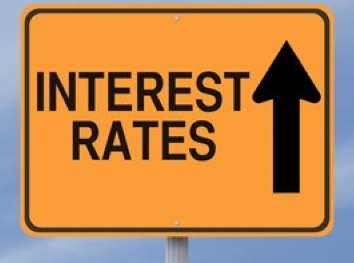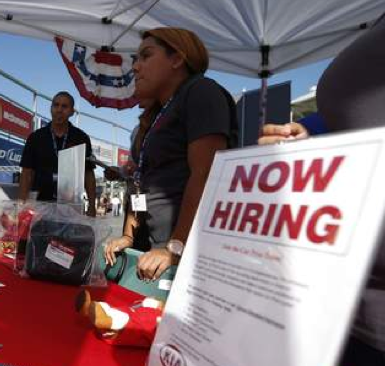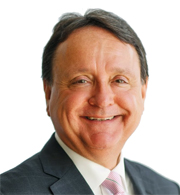
Are cheaper airfares to Europe in our future? JetBlue is positioning itself to grab some market share in a European expansion.
|

Are you a fan of collectibles? Here are 15 that are completely worthless. What about Aunt Ruth's favorite Hummel?
|
Could a pillow stop you from snoring? A new "smart pillow" Kickstarter thinks so. This pillow has built-in microphones that pay attention to the noise you make while you're sleeping.
|

Why do redheads have a powerful propensity to develop melanoma, a particularly deadly form of skin cancer?
|

These little changes can have a big impact on your health, the environment, and your wallet. Shrink Your Waste shows you easy ways to be a more conscious consumer and improve the world.
|

Conventional wisdom is that higher interest rates will be bad for stocks, but that assumption is worth challenging. There are a number of reasons to believe that higher interest rates could actually benefit stocks and the economy.
|
Why Stephen King failed to make a great Stephen King movie. Of all the movies based on King's work, he has only ever directed one film himself.
|

Help yourself, not the economy: Why you should think of yourself first, fund your retirement or your emergency fund, or get rid of your current debt.
|

Want to be a millionaire? You should add these 10 things to your bucket list.
|
Electric and hybrid cars: Why buying used may offer more value - for less money. New fuel-efficient cars often languish on dealer lots because they are too pricey for many new-car shoppers to consider.
|

A recent study has found that in the periods prior to and following a diabetes diagnosis, patients are more prone to developing cancers as well. That means that for some people, a life-altering diagnosis may come with not one but two shocks.
|

Gallup reports: U.S. job creation holds at eight-year high. The Midwest's +37 index score is notable as the highest Gallup has measured for any region in its eight-year trend.
|

It's no surprise that eating some foods can help you lose weight; however, you might not be aware that eating certain foods before and/or after exercising can optimize weight loss.
|
|
 |
|
 |

Creating a last will and testament and choosing an executor are important factors in your financial planning. Be sure to read our feature article below for some suggestions. We at Chornyak & Associates consider will formulation to be a critical step in our financial advisory relationship with our clients. Contact us now with any questions, or to work with us on your financial future: 614-888-2121 or 877-389-2121 toll free, or by e-mail at chornyak@chornyak.com.
This month's article from Commonwealth Financial Network also contains some good advice on managing your finances. Costs of weddings have soared to an average $31,000, and the trend is for all family members involved on both sides to share in the expenses. This is good to keep in mind. In addition, the article points out that you and your family may expect to spend between $700-900 to attend the festivities. Be sure to check out Commonwealth's advice for ways to economize.

Many of us have a favorite family member who is fond of collectibles, from Lladro statues to Kinkade paintings. As our article in the What's Happening Now column at the left points out, many of these items start out at a lofty price point. But, in the secondary market, it's a different story. Many are sold on eBay for more than half of what they were originally worth. Let the collector beware.
We hope you are staying comfortable through this hot summer.
Sincerely,
Joe
|
 |
|
How to choose an executor for your will
|
 |
Death isn't something we look forward to, but when it comes to our finances, it is an important topic. If we simply do nothing, we can potentially leave our loved ones with less of our wealth by not taking appropriate actions.Even if we do plan for death and leave a will, it isn't completely smooth sailing. There is the issue of choosing an executor for our estate. I am going to walk you through a couple of things you need to keep in mind when choosing an executor for your estate. What is an Executor?An executor is a person you choose who acts on your behalf after you pass away. They are the person responsible for going through your will and making sure that your wishes are followed and that the estate is settled in full. In general, the duties of an executor can last anywhere from a couple of months to a few years, depending on the size and complexity of the estate you left behind. Finally, an executor is entitled to a fee for managing your estate. However, most family members will waive this fee. But if you choose a professional, such as an accountant to manage your estate, they will take a fee. If by chance you don't create a will, or leave a will but don't name an executor, or even if the executor you name declines the position, then the probate court will assign someone to administer your will. If this should happen, you have no say in who will manage your affairs and this person has less power than an executor. In other words, it is important to pick a qualified person to act as your executor and to make sure they are open to the position beforehand. What are the Duties of an Executor?The duties of an executor are important. Not only are they there to follow your wishes, but also they are under the supervision of the court to ensure things are moving along as they should. In general, here are the executor's main duties: - Locating and probating your will
- Creating an inventory of your assets and collecting and selling them
- Paying legitimate creditor claims
- Paying any outstanding bills
- Paying any taxes owed by the estate
- Distributing any remaining assets to beneficiaries
Choosing an Executor It might not seem like a big deal, but you want to make sure the person you pick as your executor is competent and reliable, among other things. You really have to think it through to make sure you pick the best person to represent your estate. There are many reasons for this. First, if you pick a family member that no one trusts, there could be serious issues along the way as they settle your estate. People might be wondering if the executor is following your final wishes. Because of this, some people choose to have co-executors of their estate. While this is legally allowed, it can complicate things because of the need for both to sign paperwork and thus slow the entire process down. But in general, there are some characteristics you should be considering when choosing someone to be your executor: - Ability to serve
- Willingness to serve
- Competency
- Trustworthiness
- Appreciation of your family's needs
- Knowledge and experience
Choosing a Family Member vs. ProfessionalEarlier I mentioned you could choose to have your accountant or other professional be your executor. Why might you want to go this route as opposed to a family member? Because the duties of an executor are time consuming and can be overwhelming, hiring a professional makes sense for some people. The professional has likely been an executor before and knows the process. Also, they can be 100% objective when making decisions. No issues will arise because your Uncle Bob thinks Aunt Sally is spending all of your money or keeping some extra for herself on the side. But the downside to having a professional as your executor is that they most likely don't know your desires as much as a loved one would. For example, you might just mention you want any money left over after distributing to named loved ones to be donated to charity. A close family member would know what charity or type of charity you would be happy donating to. But your accountant or investment professional might not. In this case, they might donate money on your behalf to a charity you wouldn't have considered. Of course, if you choose to have a family member serve as your executor, they can hire a professional to get assistance with the process of settling your estate. In other words, it is not completely one or the other. Final Thoughts
Choosing who to manage your estate when you die is a big deal. You need to put some serious thought into making sure the person you are choosing can handle the duties and is trustworthy as well. If you choose someone unable to properly settle your affairs, it could drag out the entire process making it tougher for your loved ones to get closure. Take the task of choosing your executor seriously. They have important duties and the easier you can make settling your estate, the more time your loved ones can dedicate to remembering and mourning you.
|
 |
|
Wedding finances: a survival guide
|
 |

Americans will attend an average of three weddings this year-spending more than $700 at each. That number jumps to over $900 for millennials who are members of the wedding party. Commonwealth Financial Network Provides these suggestions for keeping costs down.
With the average cost of a wedding at an all-time high of more than $31,000, the tradition of the bride's family covering all of the expenses is becoming a thing of the past. Today, the couple themselves and the groom's family often share the costs of hosting the event. And it's not just the engaged couple and their families who bear a financial burden: between travel, lodging, and attire, wedding guests can also rack up their fair share of expenses.
Fortunately, with proper planning, it's possible to keep wedding costs under control. Here are a few pointers for enjoying the day without depleting your savings-whether you're footing the bill or simply attending the event.
If you're planning a wedding
Keep tabs on unexpected expenses. Asking the right questions up front can help you avoid unpleasant surprises as you review the final bill. Before signing any contracts, be sure you understand how the following items will be handled:
- Using outside professionals. Already have a florist or baker in mind? Depending on your reception location, you may face an additional fee if you hire outside vendors. Check to see if the wedding venue you've chosen has a preferred or required vendor list.
- Cake-cutting and corkage fees. Be sure to read the fine print here. Event venues have been known to charge $2-$5 per guest for cutting the cake and $1.50-$3.00 for every bottle the staff opens. These fees may not be verbally communicated, appearing only in the written contract.
- Overtime. Overtime pay for wait staff, musicians, and photographers can add up quickly. Be realistic about how long your party may last, and negotiate those rates with vendors and the venue itself before the event. Some will be flexible and help you keep the party going, but without an agreement in place, you could destroy your budget in the course of an extra half hour.
- Taxes and gratuities. It's all too easy to overlook these expenses as you set your budget. As a best practice, assume that taxes and gratuities are not included and allocate a sufficient portion of your budget to covering these costs.
Negotiate hotel rates and amenities.
As a courtesy to your guests, you may wish to reserve a block of hotel rooms for the night or weekend of the wedding. The guests still pay for their own accommodations, but by reserving rooms at several different price points, you may be able to take some of the sting out of the expense. Be sure to do this early, however; during peak times of year, hotels fill up quickly, limiting your negotiating power.
Besides discussing the room cost itself, don't be afraid to ask the hotel for amenities you'd like to provide to your guests. Consider the following extras:
- Free Wi-Fi
- Shuttle service to and from the wedding
- Morning-after brunch
- Airport transportation
© 2016 Commonwealth Financial Network®
|
 |
 |
|
|
Market Update
|
 |
Markets move up around the world
Equity markets around the world performed well in July, as positive U.S. economic developments combined with less-negative-than- expected international news to drive renewed investor confidence. The S&P 500 Index ended the month up 3.69 percent, while the Dow Jones Industrial Average gained slightly less, rising 2.94 percent. The Nasdaq led the group, posting a 6.65-percent gain. All three set all-time highs.
Earnings for the second quarter of 2016 came in better than expected. With 63 percent of S&P 500 companies reporting, the blended earnings decline of 3.8 percent was better than the 5.5-percent decline anticipated on June 30. Additionally, 71 percent of reporting companies announced earnings per share above estimates-higher than the five-year 67-percent average. When companies beat expectations, this often helps drive the markets higher, and we saw that in July.
Technical factors also improved during the month. All three major indices remained above their 200-day moving averages, often a sign of continued strength.
Developed international markets were also up for the month, albeit following a bumpier ride. The MSCI EAFE Index of developed markets outside the U.S. gained 5.07 percent in July. Concerns about the failed coup in Turkey and fallout from the Brexit vote had initially driven the index down, but by month-end, the index had climbed above its 200-day moving average, a positive technical development.
Emerging markets also did well, gaining 5.03 percent in July. Despite the turmoil in Europe and Turkey, technical factors for the MSCI Emerging Markets Index remained positive, as it stayed above its 200-day moving average for the entire month.
Broad U.S. fixed income markets also had a positive month. The Barclays Capital Aggregate Bond Index gained 0.63 percent for the period. The high-yield portion of the market, represented by the Barclays Capital U.S. Corporate High Yield Index, performed even better, posting returns of 2.70 percent. Even though rates were volatile in July, they closed at levels close to where they had started, largely due to increased inflows from foreign investors seeking safety. U.S. economic news mostly positive
A series of positive economic data surprises helped increase confidence during July. One of the major domestic economic concerns had been the industrials sector, but the month began with the ISM Manufacturing survey surprising to the upside. The 53.2 reading was the highest since February 2015 and suggests that the sector is stabilizing. This announcement was followed by the ISM Non-Manufacturing Index, which posted a 56.5 reading, pointing to continued strong growth in the service sector. As both measures beat expectations, this could point toward accelerated growth in the U.S. going into the second half of the year.
Perhaps more important, the June jobs data blew away expectations, with 287,000 nonfarm jobs created, well above the estimated 180,000. This number represented the largest increase since October 2015 and helped calm worries following the dismal jobs report for May. As illustrated in Figure 1, the very strong June report came after two weak months, which had given rise to fears that hiring was on the decline. Housing, among the bright spots in the U.S. economy, continued to grow at a healthy pace. The July survey of home builders came in at its 2016 average of 59, indicating steady growth. Additionally, existing home sales rose 1.1 percent in June, to a 5.57-million annual rate, beating estimates of 5.50 million and reaching the highest level since 2007. A final bright spot was a surprising increase in retail sales, which were up 0.6 percent in June compared with expectations for a 0.1-percent gain. This follows a positive 0.5-percent gain in May and indicates that consumers are willing and able to spend. It could also bode well for future growth, as consumer spending constitutes roughly 70 percent of the domestic economy.
Despite the positive employment and consumer news, and the improving surveys, business investment continued to disappoint, particularly in the durable goods orders report for June. Driven by this weakness, the advance reading of second-quarter gross domestic product (GDP) growth came in well below estimates-at an annualized quarter-over-quarter rate of 1.2 percent. Moreover, the announcement included an additional downward revision to 0.8-percent growth for the first quarter of 2016.
Even though the low GDP growth is disappointing, it largely reflects a worse-than-realized downturn for the first half of the year and is only an initial estimate. More positive trends across the economy now could well lead to positive revisions to the estimate-as we have seen before-in addition to faster growth in the second half of 2016. International risks continue to weigh on investors
Risks elsewhere in the world continued to demand attention. The most widely discussed international event in July was the failed coup d'état in Turkey. Although the motives remain unclear, the attempt by a faction of the Turkish Armed Forces to seize power from President Recep Tayyip Erdogan highlighted the very real political risks abroad. International markets in general withstood the short-term volatility of the coup attempt, with the MSCI EAFE and MSCI Emerging Markets indices trading higher at month-end than in the days before the uprising. The worst economic impact of the event seemed to be on Turkish markets and currency.
In Europe, political risks receded, as Brexit moved from a crisis to a process. Nevertheless, economic concerns mounted, particularly over the health of the Italian banking sector. A weak Italian economy has led to a threatened banking system, and new European Union (EU) restrictions on government bailouts are raising the economic risks for Italy and Europe as a whole. Worse still, the new restrictions are increasing the appeal of the Eurosceptic Five Star Movement, returning political risk to the table.
Asia continues to experience its own mix of economic and political risks. With uncertainty about Japan's economy persisting, the decision by the Bank of Japan to maintain rather than increase its stimulus programs disappointed investors and strengthened the yen, which could lead to a significant profit decline for Japanese companies. This profit decline could also increase the pressure on the Japanese stock market, already down roughly 12 percent year-to-date.
China also continues to raise concerns, including its currency devaluation and defiant response to a U.N. tribunal's decision regarding its territorial claims in the South China Sea. Economically, the currency devaluation is not an immediate problem, but with the yuan at its lowest level against the U.S. dollar since 2011, it is worth monitoring. Note that this trend is similar to what spooked the markets earlier this year. Further devaluation, especially if it is sudden, could have a negative effect on global markets.
Politically, the U.N. tribunal's decision against China's claims may force the nation to up its ante militarily. Much like the currency valuation, this possibility may not be an immediate concern to global markets, but any surprise negative development could adversely impact global stability.
Improving trends favorable for second half of 2016 Slow and steady U.S. growth combined with international risk has been the theme for quite some time. But improving trends in the domestic economy and signs of lower risk abroad suggest that the second half of the year might be better than the first. Positive economic signs include strong U.S. job and consumer spending growth, as well as improving business sentiment. Positive political signs include the apparently successful negotiations regarding the Brexit vote, a new sense of reality in the EU, and the decision by Asian countries to negotiate with China rather than confront it over the U.N. ruling. Even the Federal Reserve, in its July meeting statement, was notably more positive about the U.S. economy, and it didn't mention the international risks. As we saw in July, and indeed see every month, risks remain here and abroad. The U.S. economy is the most stable and resilient of the world, and improving trends suggest that this situation will continue. Still, short-term volatility is likely, especially as we move toward the November elections. A well-diversified portfolio with a long-term perspective is, as always, the best means of achieving financial goals through good times and bad. A well-diversified portfolio with a long-term perspective can be a good means of achieving financial goals through good times and bad. All information according to Bloomberg, unless stated otherwise.
Certain sections of this commentary contain forward-looking statements that are based on our reasonable expectations, estimates, projections, and assumptions. Forward-looking statements are not guarantees of future performance and involve certain risks and uncertainties, which are difficult to predict. Past performance is not indicative of future results. Diversification does not assure a profit or protect against loss in declining markets. All indices are unmanaged and investors cannot invest directly into an index.
|
|
 |
|